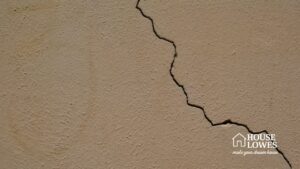Sprucing up your home or business often starts with the surfaces that see the most action. Finding the right concrete cleaner can transform a grimy driveway, while a quality glass cleaner ensures streak-free shine. It feels incredibly satisfying to see these surfaces return to their original, pristine state. This guide will walk you through everything you need to know to choose the perfect products for your cleaning projects.
We will explore the different types of cleaners available, how to select the best one for your specific needs, and tips for getting professional-level results. Whether you’re dealing with stubborn oil stains on your garage floor or just want your windows to sparkle, we’ve got you covered. Just information. GoodNever.org helps you make your home better with practical tips, ideas, and guides for everyday living—cleaning, décor, organization, and more.
Top Concrete and Glass Cleaners at a Glance
To give you a head start, here is a quick look at some of the most highly-rated concrete and glass cleaners on the market. These products have earned fantastic user reviews for their effectiveness and ease of use.
| Product Name | Cleaner Type | User Rating | Key Feature |
|---|---|---|---|
| EXIMO Waterless Concrete Cleaner | Concrete | 4.6/5 | Eco-friendly, bioremediation technology |
| GP66 Green Miracle Cleaner | Concrete & Multi-Purpose | 4.5/5 | Water-based, biodegradable, powerful |
| MasonryDefender All-Purpose Cleaner | Concrete & Masonry | 4.4/5 | Concentrated, works on various surfaces |
| Invisible Glass Premium Glass Cleaner | Glass | 4.7/5 | Ammonia-free, no-streak formula |
| Windex Original Glass Cleaner | Glass | 4.8/5 | Trusted brand, versatile, fast-acting |
| Hope’s Perfect Glass Cleaner | Glass | 4.6/5 | 100% streak-free guarantee, ammonia-free |
Unlocking the Power of a Great Concrete Cleaner
Concrete is everywhere—driveways, patios, garage floors, and sidewalks. Its porous nature makes it incredibly durable but also a magnet for dirt, oil, grime, and mildew. A simple hosing down often isn’t enough to tackle these deep-set stains. This is where a dedicated concrete cleaner becomes an essential tool in your maintenance arsenal.
What is a Concrete Cleaner and Why is it Essential?
A concrete cleaner is a specially formulated chemical solution designed to break down and lift contaminants from porous concrete surfaces. Unlike all-purpose cleaners, these products are engineered to penetrate deep into the concrete to dissolve everything from oil and grease to algae and rust stains. Using the right cleaner is a game-changer for restoring your concrete’s appearance.
The importance of using a specialized cleaner cannot be overstated. Neglected concrete not only looks unsightly, which can diminish your property’s curb appeal and value, but it can also become a safety hazard. Algae and mildew growth can make surfaces dangerously slippery when wet. A powerful concrete cleaner not only cleans but also protects your investment.
Diving into the Types of Concrete Cleaners
The world of concrete cleaning solutions is surprisingly diverse. The type of stain you’re dealing with will determine which formula is best for the job. Choosing the wrong one can be ineffective or, in some cases, even damage the surface.
pH-Neutral Cleaners
These are the gentlest options available. A pH-neutral concrete cleaner is perfect for routine cleaning and removing light layers of dirt and grime from sealed or decorative concrete. They are safe for most surfaces and won’t strip away protective sealants. If you’re just doing a seasonal refresh, this is an excellent choice.
Acidic Cleaners
When you’re faced with tough mineral deposits, efflorescence (those chalky white stains), or rust, an acidic cleaner is your best bet. These powerful formulas, which often contain muriatic or phosphoric acid, work by etching the very top layer of the concrete to remove the embedded stain.
However, this power comes with a serious need for caution. Acidic cleaners are highly corrosive and require careful handling, including wearing protective gear like gloves and goggles. They should always be diluted according to the manufacturer’s instructions, and it’s wise to test them on a small, inconspicuous area first. Using a strong concrete cleaner like this requires respect for its chemical power.
Alkaline (Degreasing) Cleaners
For greasy, oily messes in the garage or on the driveway, an alkaline concrete cleaner is the hero you need. With a high pH, these cleaners excel at emulsifying and lifting oil, grease, and transmission fluid. They work by breaking down the fats and oils into a soapy solution that can be easily rinsed away.
These are incredibly effective for automotive-related stains and are a must-have for any home with a garage workshop. The satisfaction of watching years of grease buildup dissolve is truly remarkable.
Enzymatic/Bacterial Cleaners
A more modern and eco-friendly option is the enzymatic or bacterial concrete cleaner. These products use colonies of microbes and enzymes to literally “eat” organic stains, particularly petroleum-based ones. They are a fantastic, non-toxic choice for removing oil spots.
The process is simple: you apply the cleaner, and the microbes go to work, breaking down the hydrocarbons into harmless water and carbon dioxide. This type of concrete cleaner is not an instant fix; it can take several days or weeks for the microbes to fully consume the stain, but it’s a wonderfully effective and “green” solution.
How to Choose the Best Concrete Cleaner for Your Needs
With several types available, selecting the right one can feel overwhelming. The key is to match the cleaner to the stain and the type of concrete you have.
Identify the Stain
First, figure out what you’re trying to remove.
- Organic Stains (Algae, Mildew, Moss): An alkaline or a specialized outdoor bleach-based cleaner works best.
- Oil and Grease: An alkaline degreaser or an enzymatic cleaner is the ideal choice.
- Rust and Mineral Deposits: An acidic cleaner is necessary to break these down.
- General Dirt and Grime: A pH-neutral concrete cleaner is perfect for light, routine jobs.
Consider Your Concrete Surface
Is your concrete plain, sealed, stamped, or colored?
- Sealed or Decorative Concrete: Always opt for a pH-neutral cleaner to avoid damaging the sealant or fading the color. Harsh chemicals can ruin the finish.
- Unsealed, Standard Concrete: This can handle stronger alkaline or acidic cleaners, but always test a small spot first.
Think About Environmental Impact
If you have pets, children, or are concerned about runoff into your garden or local waterways, an enzymatic or biodegradable pH-neutral cleaner is the most responsible choice. Many modern formulas are powerful without being harmful to the environment. Finding an effective but safe concrete cleaner offers peace of mind.
Pro Tips for Using Concrete Cleaners Effectively
Getting great results is about more than just picking the right product; it’s also about the right technique. Follow these steps for a flawless finish.
- Read the Instructions: This seems obvious, but it’s the most critical step. Every concrete cleaner has specific instructions for dilution, application, and safety. Ignoring them can lead to poor results or surface damage.
- Prepare the Area: Sweep the concrete surface to remove all loose debris like leaves, dirt, and gravel. This allows the cleaner to work directly on the stains.
- Dampen the Concrete: Lightly misting the concrete with water before applying the cleaner helps the product spread more evenly and prevents it from drying out too quickly, especially on a hot day.
- Apply the Cleaner: Use a garden sprayer, brush, or roller to apply the cleaner evenly. For tougher stains, you may need to agitate the area with a stiff-bristled brush to help the cleaner penetrate.
- Let it Dwell: Allow the concrete cleaner to sit on the surface for the recommended amount of time (usually 5-15 minutes). This “dwell time” is crucial for the chemicals to do their job and break down the grime.
- Scrub and Rinse: After the dwell time, scrub any stubborn spots again. Then, rinse the area thoroughly with a hose or, for the best results, a pressure washer. A pressure washer adds a powerful physical force that blasts away the dissolved contaminants, leaving the surface exceptionally clean.
- Consider Sealing: Once your concrete is clean and completely dry, consider applying a concrete sealer. This protective layer will make future cleaning much easier and protect the concrete from staining and weather damage. This step ensures the hard work you put in with the concrete cleaner lasts.
Getting a Flawless Shine: The World of Glass Cleaners
While a concrete cleaner tackles the tough, rugged surfaces, a glass cleaner is all about finesse and clarity. Streaky, hazy windows can make an otherwise clean home look dingy. The quest for a truly streak-free shine is one every homeowner understands.
An Overview of Glass Cleaners
Glass cleaners are formulated to dissolve dirt, fingerprints, smudges, and other residues without leaving behind any streaks or haze. The challenge is creating a formula that cleans effectively but evaporates quickly and completely.
Most conventional glass cleaners use a combination of solvents (like isopropyl alcohol), detergents, and sometimes ammonia to cut through grime. However, the market has expanded to include many ammonia-free and eco-friendly options.
Types of Glass Cleaners and Best Practices
Just like with concrete, there’s a glass cleaner for every preference and need.
Ammonia-Based Cleaners
Ammonia is a powerful cleaning agent that evaporates quickly, which is why it has been a longtime staple in products like Windex. It’s excellent at cutting through tough grime, like the haze that builds up on the inside of car windshields. However, ammonia has a strong odor and should not be used on tinted windows, as it can damage the film over time.
Ammonia-Free Cleaners
These are the most popular choice today. Ammonia-free cleaners are safer for a wider variety of surfaces, including tinted windows, plastics, and sensitive electronics screens. They use other solvents and detergents to achieve a streak-free shine without the harsh fumes. Products like Invisible Glass and Hope’s Perfect Glass are leaders in this category.
DIY & Natural Cleaners
For those who prefer a natural approach, a simple solution of equal parts white vinegar and water in a spray bottle can be surprisingly effective. The acetic acid in vinegar cuts through grime, though you may need a bit more elbow grease to avoid streaks. Adding a drop of dish soap can help with particularly greasy fingerprints.
Best Practices for a Streak-Free Finish
The secret to perfect glass isn’t just in the bottle; it’s in the technique.
- Use the Right Towel: Microfiber cloths are, without a doubt, the best tool for cleaning glass. They are highly absorbent, trap dirt effectively, and are lint-free. Use one cloth for cleaning and a second, dry one for buffing.
- Clean from Top to Bottom: This lets gravity work with you, catching any drips as you move down the window.
- Avoid Direct Sunlight: Cleaning windows in direct, hot sunlight will cause the cleaner to evaporate too quickly, leaving behind stubborn streaks before you can wipe it away. Clean on an overcast day or when the glass is in the shade.
- Don’t Be Shy with the Spray: Use a liberal amount of cleaner. A light misting often isn’t enough to dissolve all the dirt, which can lead to smearing.
User Reviews and Popular Product Deep Dives
Hearing from people who have actually used these products provides invaluable insight. Let’s look at what users are saying about some of the top concrete and glass cleaners.
Top-Rated Concrete Cleaner Reviews
EXIMO Waterless Concrete Cleaner
- User Review: “I was skeptical about a ‘waterless’ cleaner, but this stuff is incredible. I had a massive oil stain on my garage floor that had been there for years. I sprinkled the powder on, brushed it in, and a week later, the stain was 90% gone. A second application made it disappear completely. Amazing product!” – John D.
- Rating: 4.6/5. Users love the eco-friendly approach and its shocking effectiveness on old, deep-set oil stains. The only downside mentioned is that it requires patience. This is a top-tier concrete cleaner for oil.
GP66 Green Miracle Cleaner
- User Review: “I bought this to clean my concrete patio, which was covered in green and black mildew. I diluted it as directed, sprayed it on, and used a pressure washer to rinse. The difference was night and day. My patio looks brand new. I’ve since used it in my kitchen and bathroom. Truly a ‘miracle’ cleaner.” – Sarah P.
- Rating: 4.5/5. Praised for its versatility and power. Users are thrilled that one bottle can tackle so many different jobs, from being a concrete cleaner to a kitchen degreaser.
Top-Rated Glass Cleaner Reviews
Invisible Glass Premium Glass Cleaner
- User Review: “I am obsessed with this glass cleaner. I’ve tried everything, and this is the only one that leaves zero streaks. I use it on my windows, mirrors, and car windshield. It’s a little more expensive, but worth every penny for the perfect result.” – Maria K.
- Rating: 4.7/5. Overwhelmingly positive reviews focus on its “truly invisible” and streak-free finish. It’s a favorite among car enthusiasts and meticulous homeowners.
Industry Innovator Spotlight: The Story of S. C. Johnson & Son
When discussing household cleaning products, it’s impossible not to mention S. C. Johnson & Son, the family company behind iconic brands like Windex and Drano. While they may not be known for a specific industrial-strength concrete cleaner, their impact on the cleaning industry is monumental.
Founded in 1886 by Samuel Curtis Johnson, the company started as a parquet flooring business. Johnson developed his own floor wax to care for his customers’ floors, and this commitment to creating specific products to solve specific problems laid the foundation for the company’s future.
Now in its fifth generation of family leadership, S. C. Johnson has a net worth estimated in the billions. The company has built its empire not just on effective products but on a commitment to corporate responsibility, earning a reputation for being a great place to work and a leader in environmental transparency. Their story shows how a focus on quality and innovation can turn a small venture into a global household name, shaping the way we clean our homes for over a century. Their success demonstrates the massive market for effective cleaning solutions, whether for glass or for a heavy-duty concrete cleaner.
Final Thoughts: The Right Cleaner for a Brighter Home
Choosing the right concrete cleaner or glass cleaner is about more than just aesthetics; it’s about proper maintenance, safety, and taking pride in your space. By identifying the specific problem you’re trying to solve and understanding the different types of cleaners available, you can achieve astonishingly professional results.
Whether you’re battling a stubborn oil stain with a powerful alkaline or enzymatic concrete cleaner, restoring the bright look of your patio, or simply aiming for that perfect, invisible shine on your windows, the right product is out there. Armed with this knowledge and a little bit of elbow grease, you can transform the look and feel of your home. A reliable concrete cleaner is a valuable asset for any homeowner. The task may seem large, but with the correct concrete cleaner, success is within reach. Remember that a good concrete cleaner makes all the difference. Regular maintenance with a suitable concrete cleaner will keep your surfaces looking their best for years to come.
Frequently Asked Questions (FAQs)
Can I use a pressure washer with any concrete cleaner?
Yes, in most cases, a pressure washer is the perfect companion to a concrete cleaner. It helps blast away the dirt and grime that the cleaner has loosened. However, always rinse thoroughly to remove all chemical residues. For decorative or colored concrete, use a lower pressure setting to avoid damaging the surface.
Is an acidic concrete cleaner safe for my driveway?
It can be, but you must be extremely careful. Acidic cleaners are very strong and can etch the concrete. They should only be used for specific stains like rust or efflorescence and always be diluted properly. Test it on a hidden spot first, and wear full protective gear. It’s often best to try a less aggressive cleaner first.
What’s the most environmentally friendly option for cleaning concrete?
Enzymatic (or microbial) cleaners are generally the most eco-friendly choice, especially for oil stains. They use natural processes to break down contaminants without harsh chemicals. For general grime, a biodegradable, pH-neutral concrete cleaner is another excellent green option.
Why does my glass cleaner always leave streaks?
Streaks are usually caused by one of two things: the cleaner drying too fast or a dirty cloth simply smearing the grime around. To avoid them, clean glass out of direct sunlight and always use a clean, dry microfiber cloth for the final buff. Using enough cleaner to dissolve all the dirt is also key.
Can I use a concrete cleaner on my brick patio?
Many all-purpose masonry cleaners are safe for both concrete and brick. However, always check the product label. Bricks, especially older ones, can be more delicate than concrete. It’s wise to start with a gentler, pH-neutral cleaner and test an inconspicuous area before cleaning the entire patio. Avoid using high-pressure acidic cleaners on brick unless you are certain it can withstand it.
Admin Recommendation
Durable & Stylish Bronze Metal Roof – Your Complete Guide







